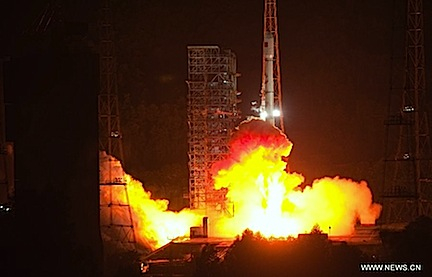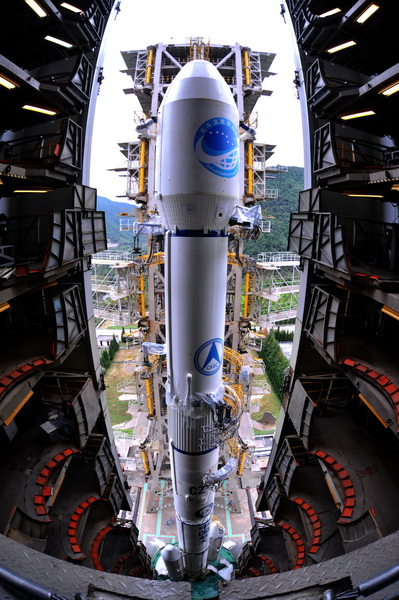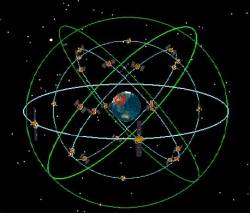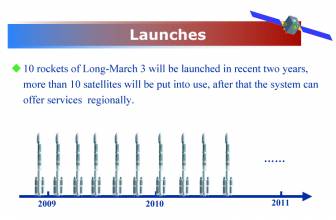
China successfully launched another two Compass/BeiDou satellites into space at 3:10 a.m. Beijing time on Wednesday (September 19, 2012), according to the Chinese state news agency Xinhua.
They were the 14th and 15th satellites for the nation’s GNSS system, and presumably the fourth and fifth middle-Earth-orbiting (MEO) satellites in the constellation. The satellites, launched from the Xichang Satellite Launch Center in southwest China’s Sichuan Province, were boosted by a Long March-3B carrier rocket.
China successfully launched another two Compass/BeiDou satellites into space at 3:10 a.m. Beijing time on Wednesday (September 19, 2012), according to the Chinese state news agency Xinhua.
They were the 14th and 15th satellites for the nation’s GNSS system, and presumably the fourth and fifth middle-Earth-orbiting (MEO) satellites in the constellation. The satellites, launched from the Xichang Satellite Launch Center in southwest China’s Sichuan Province, were boosted by a Long March-3B carrier rocket.
Since it started to provide services on a trial basis on December 27, 2011, the BeiDou system has been stable and its services have been increased and improved, according to a spokesman for the China Satellite Navigation Office.
From April 2007 to April of this year, China had launched another 13 orbiters to form its Beidou-2 system, which will eventually consist of 35 satellites.
Three Compass satellites were sent into space early this year. The 11th satellite was boosted by a Long March-3C carrier rocket on February 25, while the 12th and 13th — MEO satellites — were sent aloft on a Long March-3B carrier on April 30.
The network will provide satellite navigation, time and short message services for Asia-Pacific regions within 2012 and global services by 2020.





